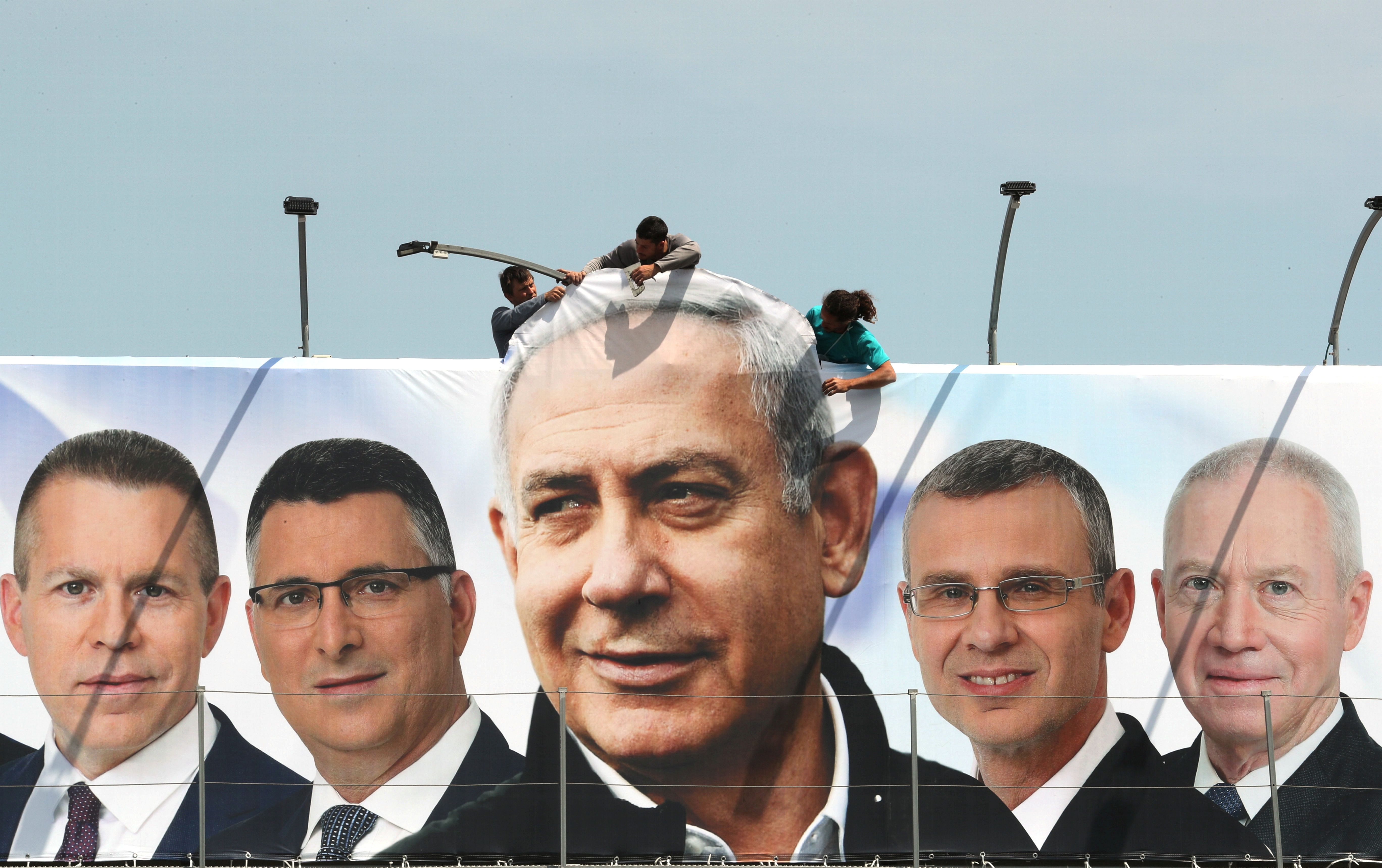Today, Israelis will go to the polls to deliver a verdict on ten years of Prime Minister Benjamin ("Bibi") Netanyahu's leadership.
On the one hand, Netanyahu has overseen one of the most prosperous decades in Israel's history while keeping Israel reasonably safe and expanding the country's international influence.
On the other, his polarizing politics have deepened social divides between left and right, between urban and rural, and between religious and secular Israelis. What's more, he is currently facing several corruption investigations that could put him on trial this summer.
But Bibi's last-minute campaign pledge to unilaterally extend Israeli sovereignty over outlying settlements in the West Bank added a new consideration for voters – one that touches on an existential question for the state of Israel.
Thirty years ago, the New York Times columnist Tom Friedman, paraphrasing Israel's founding father David Ben-Gurion, famously pointed out that Israel faces an impossible triangle: the country can never simultaneously 1) be a representative democracy, 2) be a Jewish state, and 3) include all the Biblical land of Israel (the West Bank), which is inhabited by several million Palestinians. Any two of those things are possible – not all three at once.
Netanyahu's proposal, to be precise, entails extending sovereignty over settlements, rather than all of the West Bank. But insofar as it may open the way to taking broader direct control of the West Bank (as settlements and linkages between them expand), it suggests he is comfortable throwing in his lot with the second two conditions – an avowedly Jewish state with control over the lands of biblical Israel.
Netanyahu would have to tread carefully here. Any policy that erodes even the extremely limited self-government that Palestinians currently enjoy in the West Bank would create a situation in which Israel rules directly over millions of people who have no say at all in their government. That would make it impossible for Israel to present itself credibly as a democracy.
What will Israeli voters make of this added consideration as they head to the polls today? More to the point – what do you think is the best way for Israel to reconcile this impossible trilemma?
Want more? Former Israeli Prime Minister Ehud Barak speaks to GZERO Media about Israel's rough neighborhoodCORRECTION: An earlier version of this article stated that Netanyahu had proposed extending sovereignty over the whole of the West Bank. In fact, his proposal was to extend sovereignty over settlements, including outlying ones that are not contiguous with the main settlement blocs adjacent to Israel proper.
